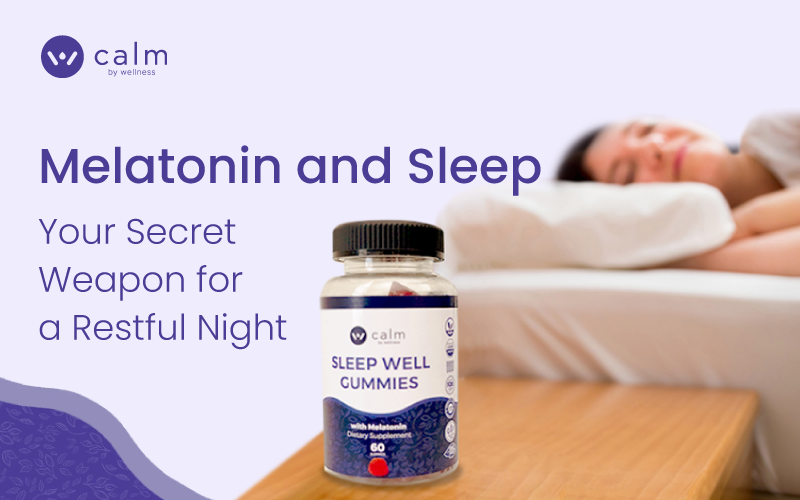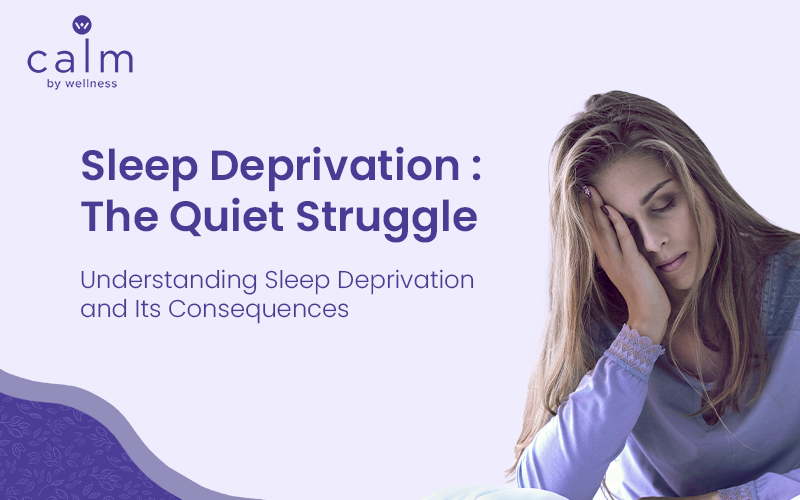
Maximizing Your Sleep Quality with Melatonin
A good night’s sleep is crucial for your health and overall well-being. It’s when your body rests, repairs, and recharges, prepping you for the day

Unless you’ve been living under a rock, chances are you’ve heard of cannabidiol, more commonly known as CBD. In fact, you may have even given it a try to ease one of the many common ailments it is purported to treat.
Available in oils, tinctures, balms, edibles, and even oil-filled vaporizers, there is no shortage of ways you can get your hands on CBD, and get that CBD into your system.
If you suffer from difficult-to-treat ailments, or want to reduce your dependence on painkillers or other prescription drugs, you have likely been presented with CBD, touted by some as a cure-all wonderdrug.
But you might also be wondering, what exactly is CBD? Is it legal? Will it get you high? And, most importantly, does CBD actually work?
We answer all of these questions and more below.
When you think of CBD, your mind likely immediately jumps to marijuana. And you’re not wrong to recognize the link between the two!
After all, they come from the same plant, Cannabis sativa. This plant contains around 100 distinct phytocannabinoids, including both CBD and THC (tetrahydrocannabinol).
The cannabis plant has been bred for generations in two primary directions, one to produce industrial hemp plants and another to produce marijuana plants. While the two plants contain the same basic set of phytocannabinoids, they contain them in vastly different proportions.
While a marijuana plant is typically high in THC, the psychoactive chemical that produces the associated “high,” an industrial hemp plant contains only trace amounts of THC — less than 0.3 percent. It is this hemp plant that is used to source CBD, which is extracted as CBD Oil.
The most important thing to know about CBD and its array of benefits is that, while promising, there is still a lot of testing to be done. Because of CBD’s classification as a Schedule 1 drug by the federal government until the 2018 Farm Bill, testing was limited.
Additionally, as you might imagine, prescription drug companies don’t love this inexpensive competitor jumping to the forefront of people’s minds as an alternative to their pricey drugs, so it can take a while for research to get funded.
That said, more and more CBD research is being done every day, and early studies and anecdotal evidence is strong that CBD may help with a variety of ailments. So, what conditions might CBD benefit, and what research has been done? Read on to learn more.
The one area in which substantial human research has been conducted is on the use of CBD to decrease the incidence of seizures in children and young adults suffering from epilepsy. In fact, it is the one condition for which a CBD-only pharmaceutical drug has been approved.
A variety of clinical trials preceded this approval, and proved effective. In fact, in one double-blind, placebo-controlled study involving 120 children and young adults, 43% of patients saw a reduction of at least 50% in convulsive-seizure frequency, as compared with 27% of patients in the placebo group.
As of 2018, Epidiolex has been approved for the treatment of two difficult-to-treat forms of childhood epilepsy: Lennox-Gastaut syndrome (LSG) and Dravet syndrome (DS). The passing of a CBD-only drug for the use of epileptic seizures demonstrates in-depth human clinical studies demonstrating its efficacy against these types of seizure disorders.

One of the most common uses of CBD oil supplements is to help those who are experiencing high levels of stress or an anxiety condition. Many preliminary studies in rats have found CBD to exhibit anxiolytic properties, and even small human studies have demonstrated similar findings.
For example, human studies have found taking CBD before a public speaking test to reduce subjective feelings of anxiety. More studies are needed to determine who can best benefit from the stress-relieving effects of CBD and how it is best used for those with chronic stress, as only small studies have been carried out.
Many common diseases are linked to chronic inflammation, including things like irritable bowel disease (IBD), Crohn’s disease, ulcerative colitis (UC), and autoimmune diseases.
Early studies in animals have found CBD to possess powerful anti-inflammatory properties, and small-scale human studies are finding similar effects. In a small study of 8 patients with Crohn’s disease, using CBD resulted in symptomatic improvements.
By reducing inflammation throughout the body, people who suffer from inflammatory conditions might find symptomatic relief with CBD use. Because of this, multiple companies are filing patents of CBD formulations for inflammatory diseases.
Much of the pain that we experience is due to inflammation. For example, arthritis pain and the pain that comes from a hard workout are both caused by inflammation. Instead of using NSAIDs, the category of drug most commonly used for pain, some people are turning to CBD oil.
In a study on arthritic mice, topical application of a CBD-enriched gel was found to improve symptoms and reduce inflammatory markers of arthritis. If the same holds to be true for humans, this might be a safer alternative to commonly abused painkillers.

Another very common use of CBD oil is as a sleep aid. Whether the improved ability to fall and stay asleep is a result of alleviation of the symptoms already discussed, or is truly a standalone benefit, many swear that CBD alleviates their symptoms of insomnia.
Preliminary studies do show promise regarding the efficacy of CBD oil at fighting insomnia. One 2018 study of 409 people with insomnia demonstrated significant improvements in perceived insomnia symptoms among participants who took CBD-rich cannabis. Notably, this study included both THC and CBD, and found that “cannabidiol (CBD) was associated with greater statistically significant symptom relief than tetrahydrocannabinol (THC), but the cannabinoid levels generally were not associated with differential side effects.”
This is potentially great news for insomnia sufferers who currently use either legal or illegal marijuana (depending on their location) to treat their sleep problems, and would prefer either a legal or non-psychoactive option.
Neurodegenerative disorders like multiple sclerosis (MS), Alzheimer’s disease (AD), and Parkinson’s disease (PD) are conditions with no known cure and few helpful treatments. Both animal studies and small human studies support CBD as a possible therapeutic agent for those with neurological disorders.
For example, scientists have been examining the effects of Sativex, a 1:1 THC to CBD oral spray, in helping to control MS muscle spasticity. In comparison to placebo, this spray helped to improve spasticity when used alongside current medications.
Another human study of CBD in a small group of 5 people with dystonic movement disorders found oral CBD to help with symptoms, although high doses of CBD exacerbated symptoms in 2 patients with PD.

Researchers believe that CBD might hold the answer for some people struggling with skin conditions like acne and psoriasis.
Acne occurs due to many variables, including an overproduction of sebum (a waxy, oily substance secreted by skin cells), certain types of bacteria flourishing, and an overactive inflammatory response.
In preliminary studies, CBD has exhibited anti-inflammatory, antiproliferative, and lipostatic effects of human sebocytes (those cells that secrete sebum), all of which might contribute to a reduction in acne frequency and severity. This might mean that CBD can help to control sebum production. Additionally, CBD exhibits antibacterial properties that could help to control acne caused by certain types of bacteria.
Similarly, the anti-inflammatory and antiproliferative effects of CBD might help people with skin conditions like psoriasis and eczema.
This was supported in a preliminary study on the effect of cannabinoids on human keratinocytes (cells that make up 90% of the cells in the outer layer of the skin) proliferation. Researchers found that CBD and other cannabinoids inhibited keratinocyte proliferation, and thus might be helpful in the treatment of psoriasis.
Many early studies have found CBD to have anticancer properties through inducing apoptosis (death) in cancer cells. Researchers have thus far found promising results when examining the effect of CBD in relation to breast, lung, melanoma, prostate, neuroblastoma, glioblastoma, colorecta, and leukemia cancer types.
According to many animals studies and small-scale human studies, CBD possesses an impressive antipsychotic potential. A recent study published in 2018 by researchers in London found that CBD might help those with psychosis conditions like schizophrenia and bipolar disorder through helping to “reset” the brain.
In this study, patients who were exhibiting early psychosis symptoms were split into either a control group, placebo group, or CBD group, following which they performed a memory task that involved portions of the brain associated with psychosis. In comparison to those in the placebo and control groups, those in the placebo group experienced the lowest abnormal brain activity.
Of course, without multiple double-blind placebo-controlled human studies in each of these areas of interest, scientific conclusions cannot yet be made when it comes to CBD’s treatment efficacy.
That said, with many successful animal studies, along with huge amounts of anecdotal evidence, you can feel secure knowing that these claims about CBD aren’t being pulled out of thin air. And with more and more research being done, it’s only a matter of time before the science is here to help us understand what all CBD is capable of.
If you’re looking to give CBD oil a try to see what it can do for you and your loved ones, try Calm by Wellness Full Spectrum Hemp Oil. The easy-to-dose dropper bottle makes finding the ideal dosage for your individual needs simple, and the tasty and aromatic essential oils make it a good choice for kids and other picky eater to enjoy.

A good night’s sleep is crucial for your health and overall well-being. It’s when your body rests, repairs, and recharges, prepping you for the day

Magnesium is an essential mineral that plays a crucial role in our bodies. It supports muscle and nerve function, helps regulate blood pressure, and maintains

Memory is key to navigating life, helping us remember experiences and connect with others. Diet, sleep, and exercise all play a role in our memory,

As the world blossoms into spring, it’s time for us to shake off the winter blues and embrace the energy of the season. With longer

In our hustle-centric world, where productivity reigns supreme, there’s a silent adversary that often goes unnoticed: sleep deprivation. It’s a pervasive issue that quietly sabotages

Calm by Wellness is the most recommended CBD & Delta-8 oil in the world. Trust our verified 5 star reviews and testimonials. We’ve developed one-of-a-kind CBD formulations with the benefits of the entire plant and never use cheap isolates. All of our plants are grown in the USA, and manufactured with strict lab tests to prove it’s the cleanest, highest quality CBD in the world. Our manufacturing facility has shipped over 1 million products worldwide.
Calm by Wellness
609 Deep Valley Dr. Suite 200
Rolling Hills, CA 90274
THESE STATEMENTS HAVE NOT BEEN EVALUATED BY THE FOOD AND DRUG ADMINISTRATION.
THIS PRODUCT IS NOT INTENDED TO DIAGNOSE, TREAT, CURE, OR PREVENT ANY DISEASE.

Calm by Wellness is the most recommended hemp CBD oil in the world. Trust our verified 5 star reviews and testimonials. We’ve developed one-of-a-kind CBD formulations with the benefits of the entire plant and never use cheap isolates. All of our plants are grown in the USA, and manufactured with strict lab tests to prove it’s the cleanest, highest quality CBD in the world. Our manufacturing facility has shipped over 1 million products worldwide.
Calm by Wellness
609 Deep Valley Dr. Suite 200
Rolling Hills, CA 90274
[email protected]
THESE STATEMENTS HAVE NOT BEEN EVALUATED BY THE FOOD AND DRUG ADMINISTRATION.
THIS PRODUCT IS NOT INTENDED TO DIAGNOSE, TREAT, CURE, OR PREVENT ANY DISEASE.